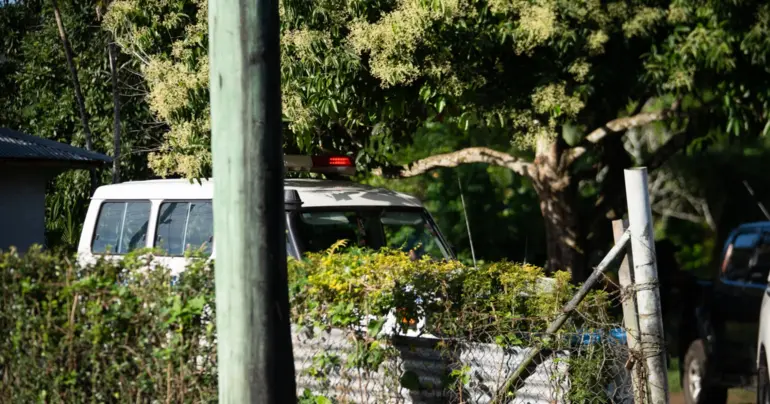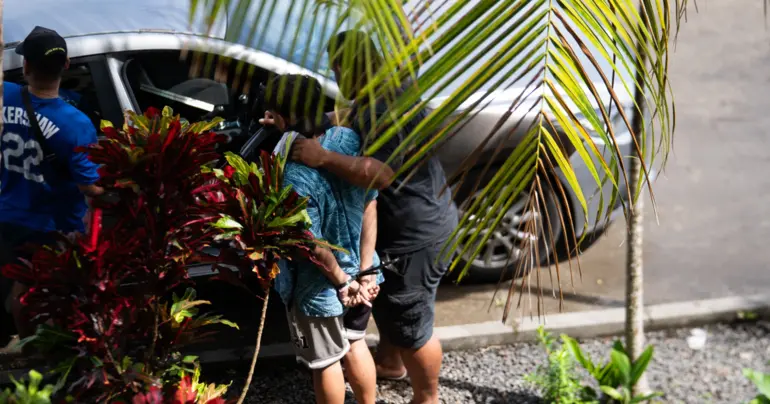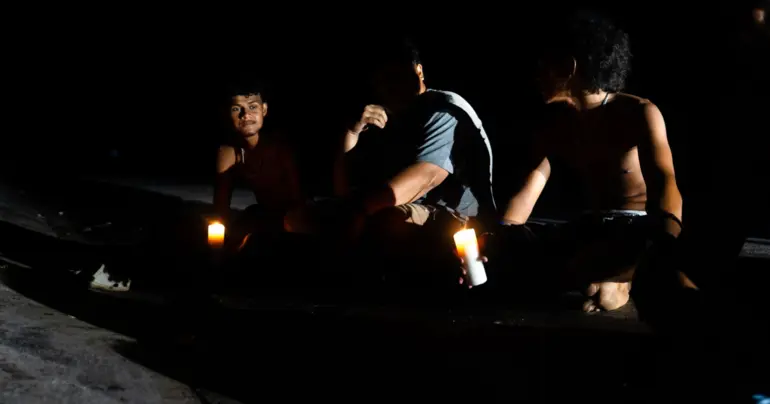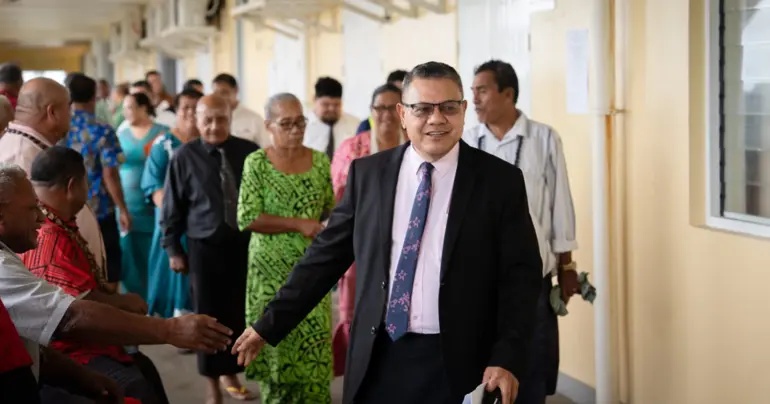Leadership needed to drive health message for a healthier Samoa
 By The Editorial Board
•
25 September 2020, 11:50PM
By The Editorial Board
•
25 September 2020, 11:50PM
Leaders lead by example. When it comes to obesity, size and health, it’s probably safe to conclude that the leaders of this nation have to rethink and reset their goals in as far as setting examples for the younger generation and the people they lead.
With the exception of a few, it’s undeniable that what we see today in Samoa is alarmingly unhealthy. And we are not just talking about Parliamentarians, the public service or the Government. We see it everywhere, including churches, villages, schools and families.
To say that Samoa has a health problem would be the understatement of the century. If we are honest, we don’t just have a deteriorating health crisis, we’ve got a really sick and obese nation. It’s an uncomfortable truth and some of us wouldn’t want to admit it but sometimes it helps to call it for what it is.
What is even more worrying is that obesity and unhealthiness in general transcends generations. We see in the old, middle aged and even more concerning young people. All you need to do is visit some primary schools around Samoa to see just how obese so many young boys and girls have become.
We’ve been talking a lot about different crises lately and we’ve seen how the Government and leaders react to them. The one that comes to mind immediately is Samoa’s reaction to the coronavirus pandemic, even without a case present in the country. We’ve endured six months of lock down and this nation’s longest State of Emergency (S.O.E.), which has come at an enormous cost.
We can never be too careful when it comes to the protection of lives especially against a threat that the world is still trying to find a cure.
But the response, as over the top of some us believe, is still impressive. It is the sort of response one would expect when there is a crisis. Now think about the reaction to the coronavirus and compare that to what has been done to combat non-communicable diseases in Samoa, which is something we’ve known for years.
The difference is striking. They are worlds apart and yet non-communicable diseases kill hundreds of Samoans day after day. Every day there is someone dying from an obesity-related illness. Every week, we have family members, friends, people we know of die from diabetes, hypertension, stroke, kidney failure, cancer and heart diseases. This is the real crisis before Samoa; it is a threat that should be at the forefront of our thinking.
It deserves a crisis-like response and yet we either pretend it doesn’t exist, or our leaders only talk about it when there is funding to host a gathering to celebrate some health day or something. This attitude needs to change.
Which is why we believe the call by the Vice-Chancellor of the Oceania University of Medicine, Manufalealili Dr. Tole’afoa Lameko, to elevate the importance of the work to end obesity, could not have come at a better time. In an article published in the latest edition of the Journal of Samoan Studies, Manufalealili says more sport in the villages and a ban on advertising sugary food and drinks would go a long way to curb the obesity problem. He also clearly identified the lack of leadership, especially showing good examples.
“My general observation, as a clinician living in Samoa is that most of the politicians and government officials in Samoa are either overweight or obese,” he said. “Unfortunately, most of the church ministers and their wives are also generally obese. The fact that so many of these religious and political elites are obese, and in positions of power and influence, it may appear to many Samoans that power and influence are positively correlated with obesity.”
Well we couldn’t agree more with the good doctor but then his general observation is quite obvious in Samoa, isn’t it? It is what we alluded to at the beginning of this piece. The more important question is, what can we do? Where do we go from here? We know we’re in a crisis, but how do we get ourselves out of it?
One way to address it, according to Manufalealili, is to get the churches and theological colleges to integrate teaching on a healthy diet and exercise as part of their “Christian callings.” It’s a great idea, we think. The church is not just a pillar of Samoan society; it is probably the most influential group when it comes to changing people’s behaviour and mindsets. We shouldn’t stop with the churches though, we should do the same with schools, villages and in families.
Manufalealili also highlighted the need for structural change to help push the message. This includes tighter regulations on advertising and charging more taxes on sugar-sweetened food and drinks.
“In Samoa, soft drinks and sugar-sweetened beverages are being advertised on billboards facing the main streets and there is a barrage on TV of retailers advertising imported snack foods and other processed foods,” the doctor said. “Perhaps using the same ideas to ban the food industries from conducting widespread advertisement of sugar-sweetened beverages and from sponsoring sports activities of all ages.
“Another more controversial measure is to increase the taxes on fatty, salty, and sugar-sweetened food to deter consumers from buying these items.”
The suggestion is not new. It has been made time and time again but for one reason or another it continues to be ignored.
The fact is that many case studies from around the world have confirmed the life-saving impact of charging more taxes on products that are high in sugar and regulating the promotion of them. The Government cannot continue to ignore this call if they are serious about a healthier nation. What do you think?
Have a healthy weekend Samoa, God bless!
 By The Editorial Board
•
25 September 2020, 11:50PM
By The Editorial Board
•
25 September 2020, 11:50PM











